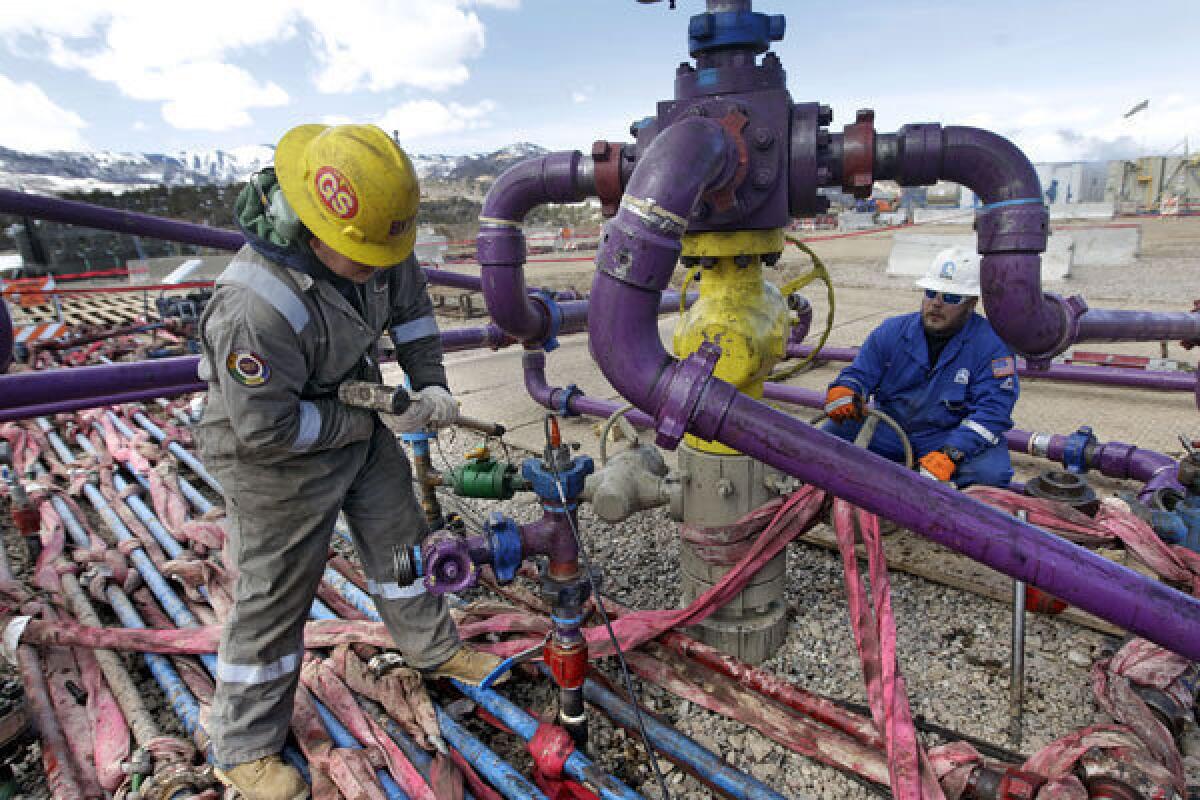Interior Department offers new rules for fracking

- Share via
WASHINGTON — The Interior Department proposed new rules to regulate hydraulic fracturing for oil and gas on federal land Thursday, drawing criticism from environmentalists that it had weakened an earlier draft to placate industry.
Industry officials were not mollified, however, reiterating their objections to federal standards. Last year, they criticized the department’s earlier draft rules as inflexible and onerous.
“We are proposing some common-sense updates that increase safety while also providing flexibility and facilitating coordination with states and tribes,” Interior Secretary Sally Jewell said. “As we continue to offer millions of acres of America’s public lands for oil and gas development, it is important that the public has full confidence that the right safety and environmental protections are in place.”
The changes did not satisfy industry officials.
“States have been successfully regulating fracking for decades, including on federal lands, with no incident of contamination that would necessitate redundant federal regulation,” said Kathleen Sgamma, vice president of government and public affairs for Western Energy Alliance, a Denver-based trade group. “While the current rule is better than the first impractical rule, DOI still has not justified the rule from an economic or scientific point of view.”
High-volume hydraulic fracturing involves shooting millions of gallons of water, sand and chemicals underground to crack shale formations and unlock oil and gas. Companies resist disclosing what chemicals they use.
Critics insist that a federal standard is needed to avoid the states’ patchwork of rules, some of which are controversial or weak. They want to know what chemicals are being injected, and they want to ensure that air and water supplies are protected.
Environmentalists criticized the latest rules for allowing companies to submit a list of fracking chemicals after a well has been fractured, not before. The draft rules also allow companies to withhold information about chemicals they consider trade secrets. Nor do the rules call for baseline monitoring of nearby air or water before fracking and after.
The Interior Department will accept public comments on the draft rules for 30 days after their publication in the Federal Register.
“These rules protect industry, not people,” said Frances Beinecke, president of the Natural Resources Defense Council. “They are riddled with gaping holes that endanger clean, safe drinking water supplies for millions of Americans nationwide. This draft is a blueprint for business-as-usual industrialization of our landscapes.”
More to Read
Sign up for Essential California
The most important California stories and recommendations in your inbox every morning.
You may occasionally receive promotional content from the Los Angeles Times.











